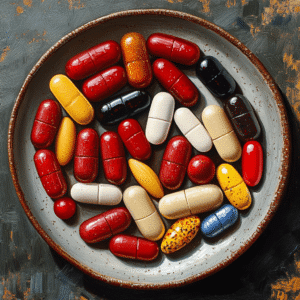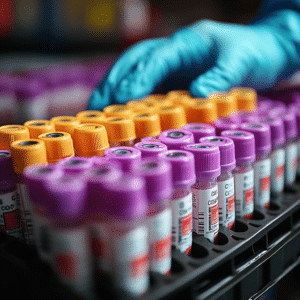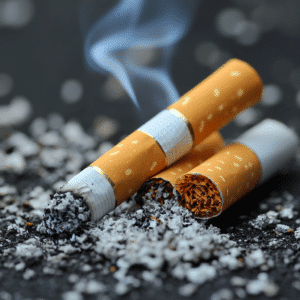Shame is an immensely powerful emotion that often intertwines with addiction, creating a relentless cycle that’s challenging to break. The “shame addiction cycle” refers to a pattern of substance use to escape or avoid negative feelings, which paradoxically leads to more shame because of societal stigma. Overcoming shame in addiction is crucial for recovery, and understanding its roots is the first step toward freeing oneself from this debilitating cycle.
Understanding the Roots: Overcoming Shame in Addiction
Shame can take root in various ways. Societal stigma, personal failures, or familial expectations frequently contribute to feelings of unworthiness. It’s like being caught in a storm that refuses to pass. This storm can push individuals deeper into addiction, as they seek substances to numb the pain. Recognizing these origins is essential in the journey toward healing and recovery.
Societal Stigma
Society often views addiction through a lens of moral failing rather than a chronic illness. This harsh judgment can make individuals feel isolated and ashamed, preventing them from seeking help.
Personal Failures
Perceived personal failures, such as career setbacks or relationship issues, can amplify feelings of shame. This, in turn, can lead to further substance use as a coping mechanism.
Familial Expectations
Family pressures and expectations can be overbearing. Failing to meet these can create a hidden burden of shame, compelling individuals to seek solace in addiction.
The Psychological Impact of Shame: Breaking Down Barriers
Shame doesn’t just linger on the surface; it penetrates deeply, affecting a person’s psyche. Addiction thrives in isolation, where shame keeps individuals from reaching out for help. This secrecy and withdrawal only strengthen the cycle. According to the National Institute on Drug Abuse (NIDA), addressing emotional wounds is a critical component in recovery.
Increased Secrecy and Isolation
Shame fosters a need for secrecy. This need can lead to a double-life that distances individuals from their loved ones and social circles.
Heightened Vulnerability to Addiction
Shame not only accompanies addiction but also heightens vulnerability to addictive behaviors. Individuals often turn to drugs or alcohol to cope with these overwhelming emotions.
| Aspect | Details |
| Shame Addiction Cycle | Refers to a pattern where substance use is a means to escape negative self-conscious emotions, which paradoxically leads to increased shame regarding the stigma associated with substance use. [7, 19, 20] |
| Link to Mental Health | Shame often accompanies guilt, depression, and other mental illnesses. It can drive individuals to use substances as a coping mechanism, exacerbating the problem. |
| Importance of Optimism and Introspection | Cultivating optimism, introspection, and self-awareness are essential in overcoming shame. This includes developing self-compassion, acknowledging traumas, and forgiving oneself for past behaviors. [Jun 13, 2023]. |
| Self-Compassion and Forgiveness | Crucial steps include bearing witness to personal traumas and forgiving one’s past emotions, ideas, and behaviors to overcome toxic shame in recovery. |
| Heightened Vulnerability | Heightened shame significantly increases vulnerability to addictive behaviors, particularly substance use. (Cook, 1987). |
| Emotional Education | Educating individuals about the relationship between shame, guilt, and addiction is key to understanding and breaking the cycle. |
| Therapeutic Approaches | Counseling and support groups can provide safe spaces for individuals to share experiences without judgment, reducing shame and promoting healing. |
| Community and Support | Building a supportive community that understands the complex relationship between shame and addiction helps individuals feel less isolated and more understood. |
| Continuous Self-Improvement | Engaging in activities promoting self-improvement and positivity even outside of therapy sessions can help maintain optimism and reduce shame. |
| Feature | Benefit |
| Increased Self-Awareness | Better understanding of emotional triggers and avoidance of future substance use. |
| Emotional Resilience | Enhanced ability to cope with life stresses without resorting to substance use. |
| Improved Mental Health | Decrease in co-occurring symptoms of depression, anxiety, and other mental health disorders. |
| Strengthened Relationships | Rebuilding and improving personal relationships that may have been damaged due to substance use and related shame. |
| Greater Personal Happiness | Achieving a sense of inner peace and happiness detached from the cycle of addiction and shame. |
| Enhanced Self-Compassion | Facilitates ongoing forgiveness and understanding towards oneself, essential for long-term recovery. |
| Community Support | Helps combat isolation by connecting individuals with peers who understand and share similar experiences. |
| Therapeutic Progress | Continued progress in therapy leads to long-term success and relapse prevention. |
Real-life Stories: Overcoming Shame through Empathy and Support
Real-life stories can be immensely powerful in breaking the cycle of shame. Hearing about others’ journeys fosters empathy and provides hope.
The Journey of Mark Ruffalo
Actor Mark Ruffalo’s struggle with addiction and shame is well-known. His path to sobriety included acknowledging his shame and reaching out for empathetic support from his loved ones and professionals. This personal acceptance and external support played pivotal roles in his recovery.
Shatterproof’s Approach
Organizations like Shatterproof work tirelessly to reframe addiction as a chronic illness. By advocating for this perspective and sharing personal Stories Of recovery, they help individuals understand they are not alone in their struggle. These shared experiences help dismantle the stigma and shame surrounding addiction.
Practical Steps: Overcoming Shame in Addiction
Breaking the cycle of shame involves practical, actionable steps. Here are essential strategies that can help:
Accept Vulnerability
Embracing vulnerability is often seen as a weakness, but in addiction recovery, it’s a strength. Accepting that you can experience pain and still seek help is crucial for overcoming shame. Vulnerability is the gateway to receiving and giving support, which is vital for recovery.
Seek Comprehensive Therapy
Engaging in therapies like Cognitive Behavioral Therapy (CBT) and Dialectical Behavior Therapy (DBT) can be incredibly beneficial. These therapies help individuals process and overcome shame, managing negative thought patterns and promoting healthier coping mechanisms.
Engage in Support Groups
Support groups like Narcotics Anonymous (NA) or Alcoholics Anonymous (AA) provide a safe, non-judgmental space to share experiences and receive support. These environments foster collective understanding and diminish feelings of shame. Finding a local support group can be a life-changing decision for those struggling with addiction.
The Role of Families: Breaking the Stigma
Families hold the power to either perpetuate or help overcome shame. It’s essential for families to educate themselves about addiction and approach their loved ones with empathy and support instead of judgment and blame.
Educating Communities on Addiction
Books such as “Beautiful Boy” by David Sheff and “Clean” by David Sheff are excellent resources for families trying to understand addiction. Moreover, Educating Communities on addiction helps break down stigma and fosters a more supportive environment for recovery.
Public Campaigns: Reducing Stigma at a Societal Level
Public campaigns play a pivotal role in changing societal views on addiction.
The Drogfree Youth Initiative
Norway’s Drogfree Youth Initiative is a notable example of impactful public campaigns. By promoting open conversations about addiction and recovery, they reframe addiction as a health issue, encouraging public empathy and support.
Faces & Voices of Recovery
The organization Faces & Voices of Recovery works relentlessly to highlight real stories of recovery and advocate for policy changes. Their campaigns emphasize viewing addiction through a compassionate lens, greatly aiding in the reduction of shame.
Long-term Strategies: Sustaining Recovery and Self-Esteem
Recovery is an ongoing process that extends far beyond initial treatment.
Continual Self-Reflection and Growth
Developing tools like journaling, mindfulness meditation, and regular therapy sessions help maintain a sense of progress and self-worth. Self-reflection and growth are crucial for sustaining recovery over the long haul.
Building a Supportive Network
A supportive network of friends, family, and professionals is indispensable. This network acts as a safety net, continually reinforcing positive behavior and emotional resilience.
Innovative Perspectives: Transforming Shame into Strength
Turn shame into a source of strength by redefining your narrative. Viewing addiction as a journey that builds resilience and wisdom empowers you to see your recovery as a testament to your strength and endurance.
Optimism, introspection, and self-awareness are key to breaking out of the cocoon of shame. Developing deep inner compassion for oneself, recognizing one’s traumas, and forgiving past selves for former emotions and actions are crucial steps in this transformation.
In the journey of overcoming shame in addiction, vulnerability becomes a pillar of strength, empathy a guiding light, and support a crucial lifeline. Transforming the narrative around addiction from one of stigma to one of resilience and recovery is not just a personal victory but a societal imperative. Let each step toward transparency and understanding mark the breaking of the cycle and the dawn of hope and healing.
For families dealing with a child’s addiction, Mothers Against addiction stands as a beacon of support, offering resources, empathy, and hope. Together, let’s break the cycle and foster a community where recovery and resilience shine brighter than shame.
If you’re questioning decisions like Is it a good time To buy a car or need assistance with long-term goals, financial tools like a home finance calculator can provide clarity. Remember, managing stress and uncertainty in all aspects of life can significantly impact one’s journey to overcoming shame in addiction.
Empathy, compassion, and resilience are powerful weapons against the cycle of shame. Let’s use them wisely and support each other towards a brighter, addiction-free future.
Overcoming Shame in Addiction: Break the Cycle
Interesting Facts on Overcoming Shame
Ever noticed how celebs like Renee Zellweger can stir up conversation with just a change in appearances? Well, let’s dive deep into the lesser-known terrain of overcoming shame in addiction. Believe it or not, shame and addiction share quite the twisted bond—each one feeding off the other, making it challenging to break free.
Speaking of changes and transformations, did you know that many people struggling with addiction often compare themselves to public figures, using their transformations as benchmarks? Take, for instance, the case of “Renee Zellweger’s plastic surgery before after”: https://www.theconservativetoday.com/renee-zellweger-plastic-surgey-before-after/. These comparisons can amplify feelings of inadequacy. However, recognizing this can be the first step to breaking the shame-addiction cycle.
Moreover, financial troubles often get tangled up with addiction. Many people drown in unpaid bills triggered by substance misuse. Ever consider how some obtain a “long-term personal loan”: https://www.mortgagerater.com/long-term-personal-loan/ trying to cover debts? While loans provide temporary relief, they sometimes increase the looming shadow of shame, making recovery appear even more out of reach.
One way to address this issue is through Addiction awareness Campaigns: https://www.mothersagainstaddiction.org/addiction-awareness-campaigns/. These initiatives highlight stories of resilience, showing that nobody is alone in their struggles. When people see they’re not singled out, it strips away layers of isolation and shame.
And here’s a trivia tidbit: The impact of a supportive community can be immense. Research shows that sharing experiences in a judgement-free zone can significantly improve recovery outcomes. So, the next time you think about how to tackle shame in addiction, remember these little nuggets of hope, transformation, and community strength.
Overcoming shame in addiction might seem like a tall order, but it’s always within reach. Let’s keep the conversation going, stay informed, and support one another in this journey.
What role does shame play in addiction?
Shame plays a big role in addiction because it can make people feel so bad about themselves that they turn to drugs or alcohol to escape those feelings. This starts a cycle where using substances creates more shame, leading to even more substance use.
How to overcome shame in recovery?
To overcome shame in recovery, it’s important to be optimistic, reflect on your experiences, and become more self-aware. Be kind to yourself, acknowledge your traumas, and forgive yourself for past mistakes. This helps build a stronger and healthier sense of self.
What is the difference between shame and guilt in recovery?
Shame means you believe you are bad, while guilt means you believe you did something bad. In recovery, guilt can sometimes motivate you to change your behavior, while shame can make you feel hopeless and stuck, making recovery harder.
How do you recover from chronic shame?
Getting over chronic shame requires deep introspection and developing inner compassion. It involves acknowledging and accepting past traumas, and forgiving yourself for past actions and feelings, which helps to slowly dissolve the shame.
How to stop shame spiral?
To stop a shame spiral, try to catch those negative thoughts early and challenge them. Remind yourself that everyone makes mistakes, and focus on what you can learn from the experience rather than beating yourself up about it.
Is shame a barrier to sobriety?
Yes, shame can be a big barrier to sobriety. Feeling unworthy or flawed can make it really hard to stick to a recovery plan because you might not believe you deserve to get better.
What counteracts shame?
Optimism, self-reflection, and self-compassion are great counteractions to shame. Building a supportive community around you and talking openly about your feelings can also help.
How do you release shame from your body?
Releasing shame from your body often involves mindfulness and physical activities. Practices like yoga or meditation can help you become more aware of your feelings and release tension stored in your body.
How do you dissolve shame?
Dissolving shame takes consistent self-compassion and forgiveness. Talking through your feelings with a therapist or counselor can also help uncover the roots of your shame and address them.
What are the four types of shame?
The four types of shame include toxic shame, which is deeply internalized; situational shame, which is temporary and related to specific events; collective shame, which is felt by a community or group; and felt shame, which is linked to how we think others see us.
Is shame a trauma response?
Shame can definitely be a trauma response. If you’ve experienced trauma, you might feel like the event was your fault or that it damaged your self-worth, leading to feelings of shame.
Is shame a coping mechanism?
Shame is sometimes used as a coping mechanism because it can numb emotions or deflect attention away from other painful feelings. It can be a way to manage or control situations, even though it’s not a healthy strategy.
What is the best therapy for shame?
The best therapy for shame is often cognitive-behavioral therapy (CBT), which helps you challenge and change negative thought patterns. Therapy that includes elements of self-compassion and mindfulness can also be very effective.
What is the antidote to shame?
The antidote to shame is self-compassion. Practicing kindness to yourself, forgiving your mistakes, and understanding that everyone has flaws can help counteract the destructive feelings of shame.
How to unblock shame?
Unblocking shame involves understanding where it comes from and challenging the thoughts that fuel it. Therapy, self-reflection, and positive affirmations can help break down the barriers shame puts up.
What is the shame spiral of addiction?
The shame spiral of addiction is when shame leads to substance use, which then leads to more shame, creating a vicious cycle that’s hard to break without support and intervention.
What is shame in abuse?
Shame in abuse often comes from blaming yourself for the abuse, thinking you’re somehow at fault or flawed. It’s a heavy burden that can make recovery difficult, but it can be lifted with the right support and therapy.
What is the role of shame?
The role of shame is often to signal that something needs attention, like when you’ve strayed from your values. But when it becomes toxic, it can distort your self-view and make positive change very hard.
What does shame cause us to do?
Shame can cause us to isolate ourselves, hide from others, and avoid opportunities for connection and growth. It can lead to negative behaviors like substance abuse as a way to cope with the overwhelming feelings of worthlessness.




























